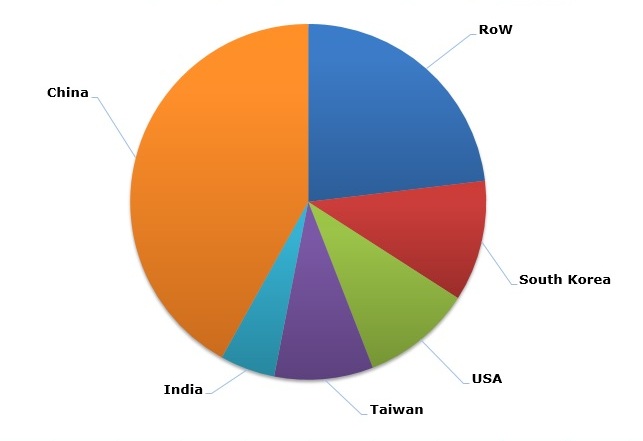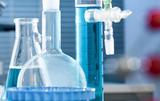Purified terephthalic acid (PTA) is a raw material used to make polyethylene terephthalate (PET) and PET-based products (fibres, films, etc.), which in turn find application in versatile downstream products, like clothing, carpets, car parts, food containers, engineering plastics, to name just a few. As such, PTA is largely integrated into the entire polyester supply chain. For many companies, operating on the PTA market, integration into this chain becomes vital. Companies without reliable access to paraxylene and other feedstock or unable to build strong relationships with the downstream sector are extremely vulnerable.
PTA is a large-tonnage commodity with a highly competitive market environment. The PTA market is dominated by producers located in China and other Asia-Pacific countries, which also fiercely compete with each other on the PTA market.
Purified terephthalic acid: structure of the global production by country

Nevertheless, the PTA market heavily relies on multinationals, like BP Chemicals, (whose facilities are scattered in different regions), and western proprietary technologies, developed by such companies as Indorama (e.g. regenerative thermal oxidiser) or INVISTA (e.g. P8 technology). Currently, the market for PTA shows mixed dynamics. In some regions, PTA prices are rising due to multiple reasons, including facility turnarounds (some are unscheduled) and feedstock price hikes. However, the general feeling which prevails is that of uncertainty, fuelled by seasonal factors and volatility of various currencies.
Find out more on the terephthalic acid (PTA) market in the in-demand research report “Terephthalic Acid (TPA): 2016 World Market Outlook and Forecast up to 2020”.
